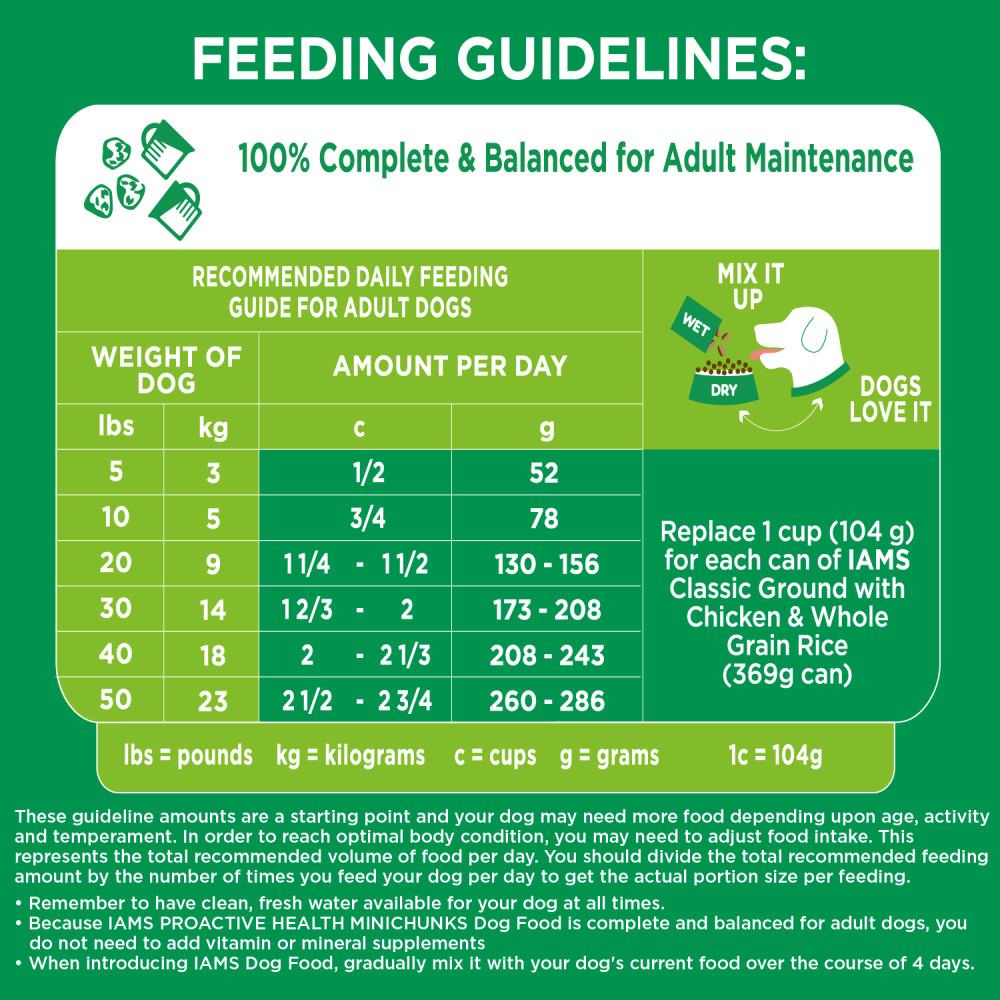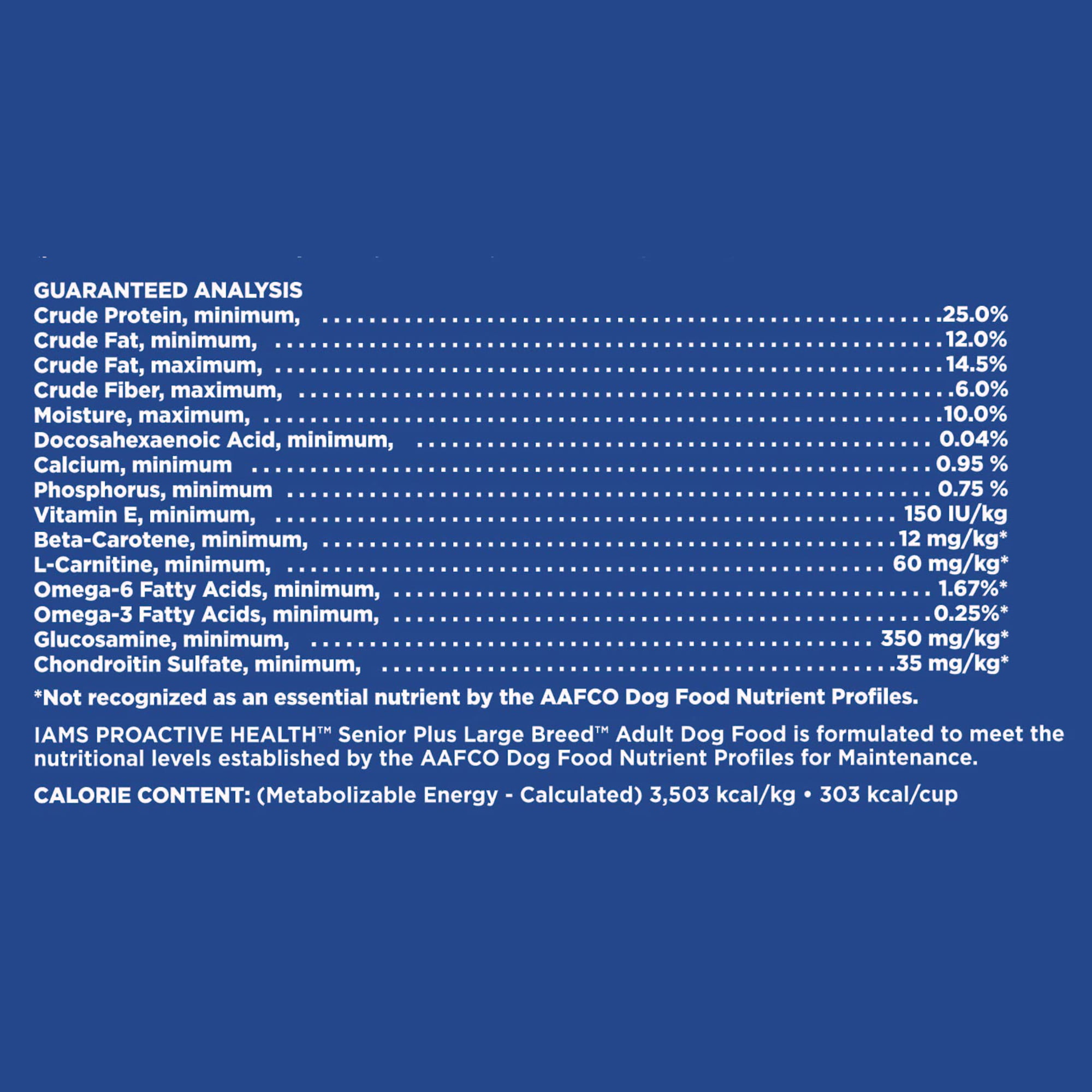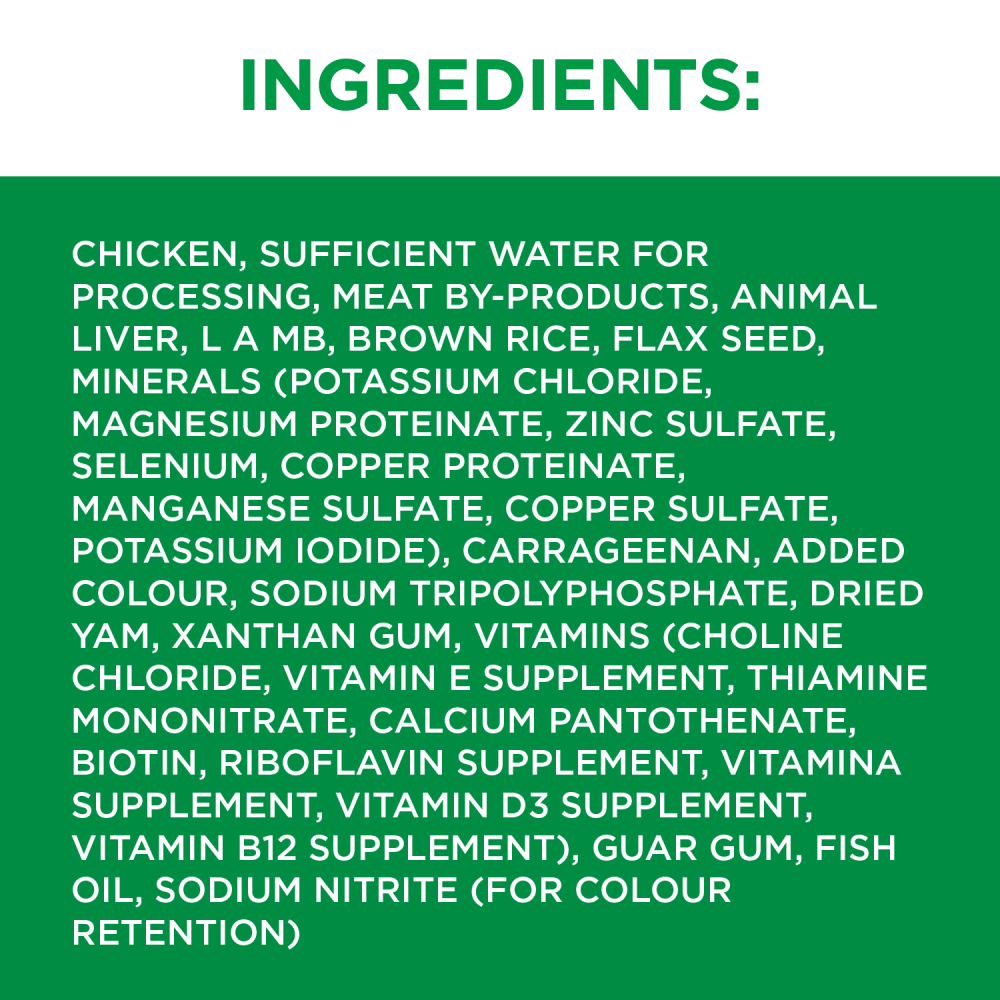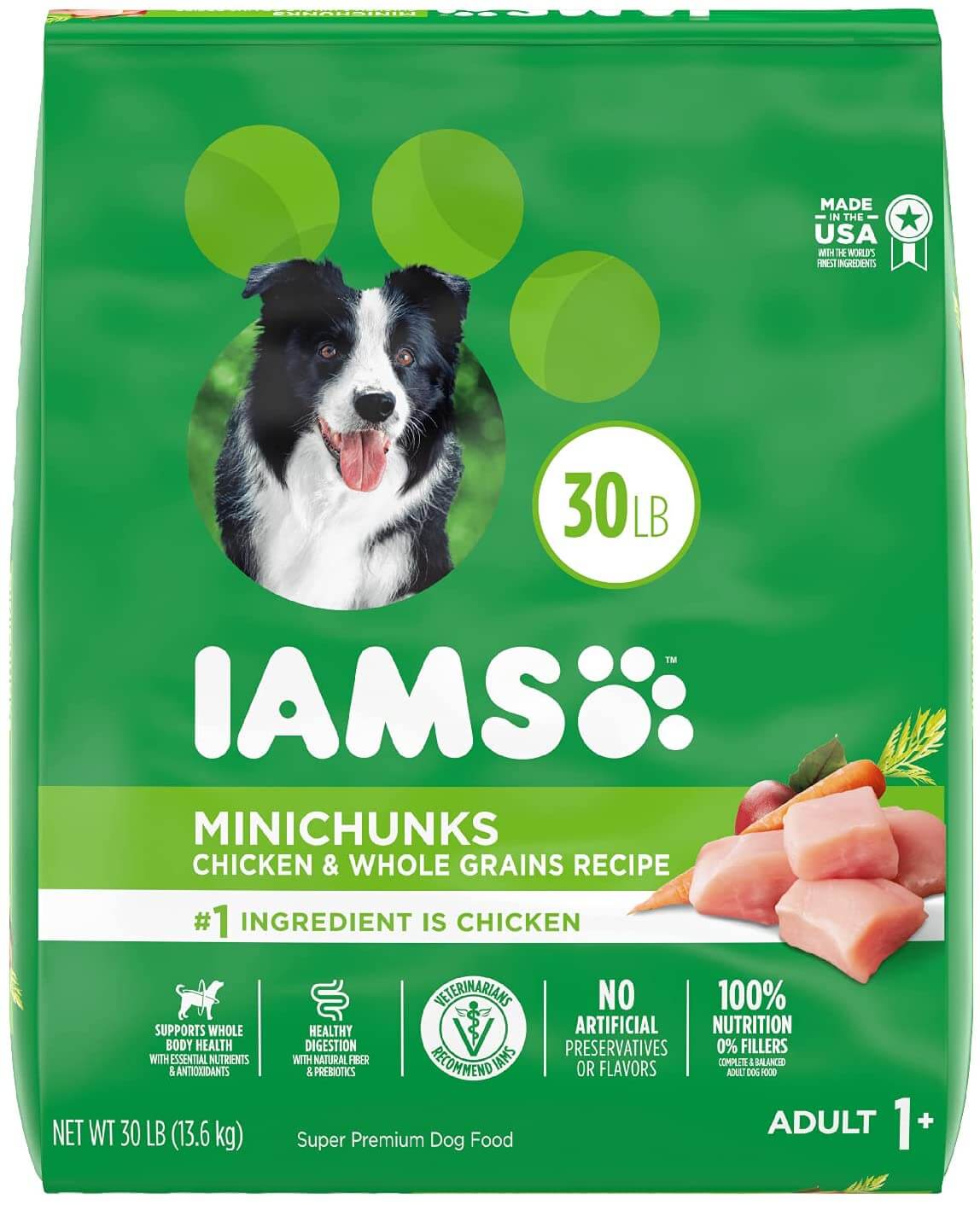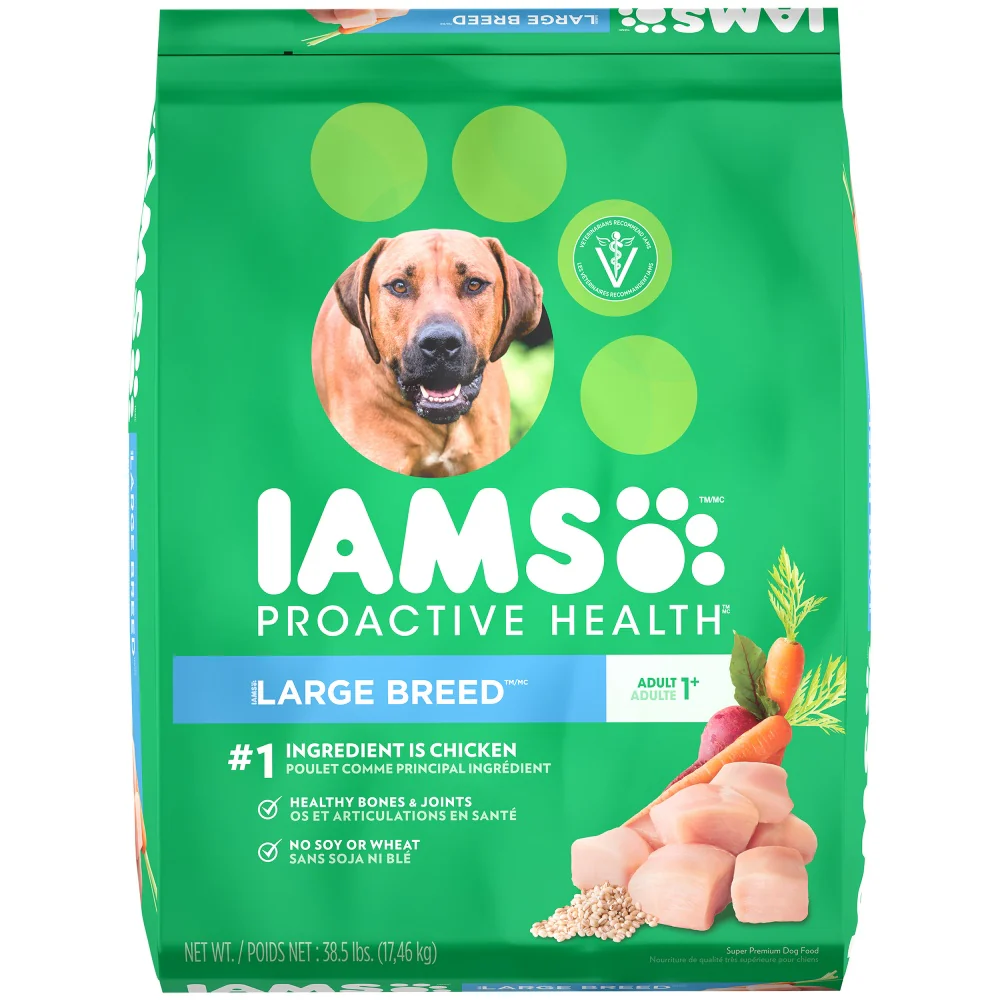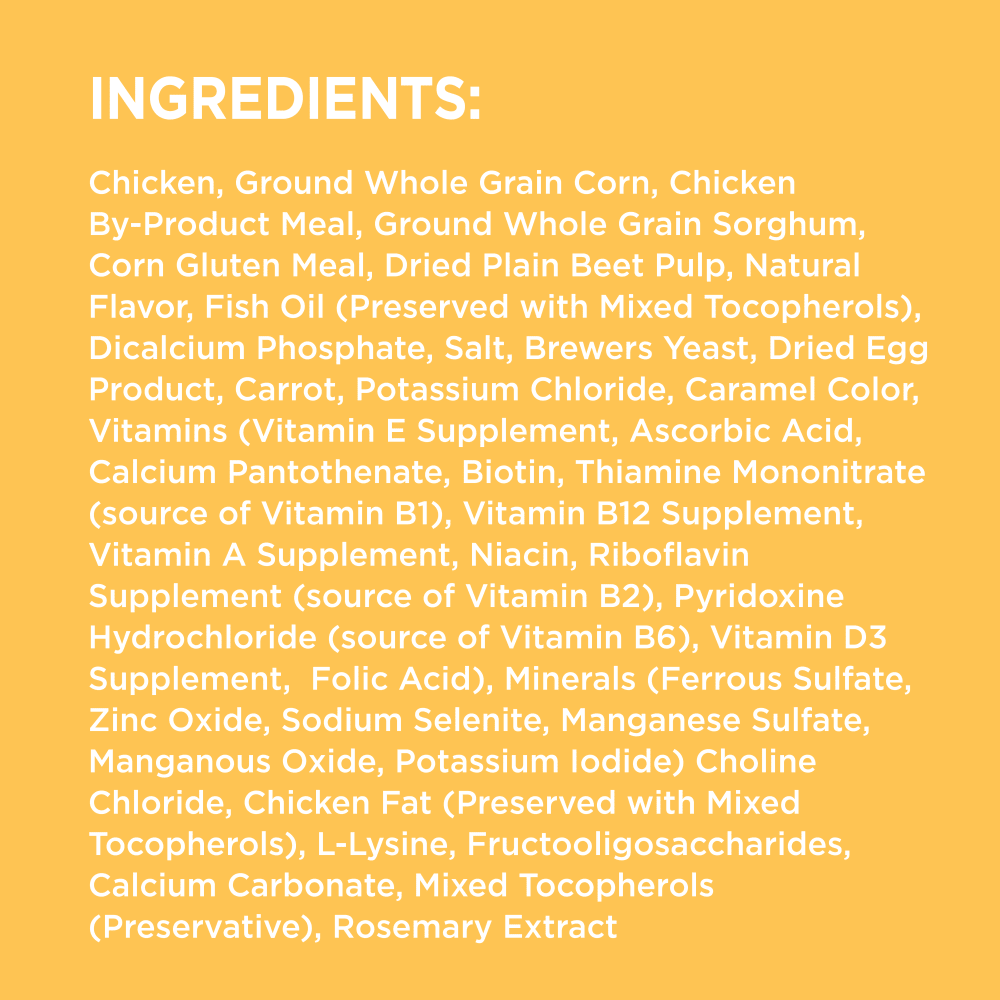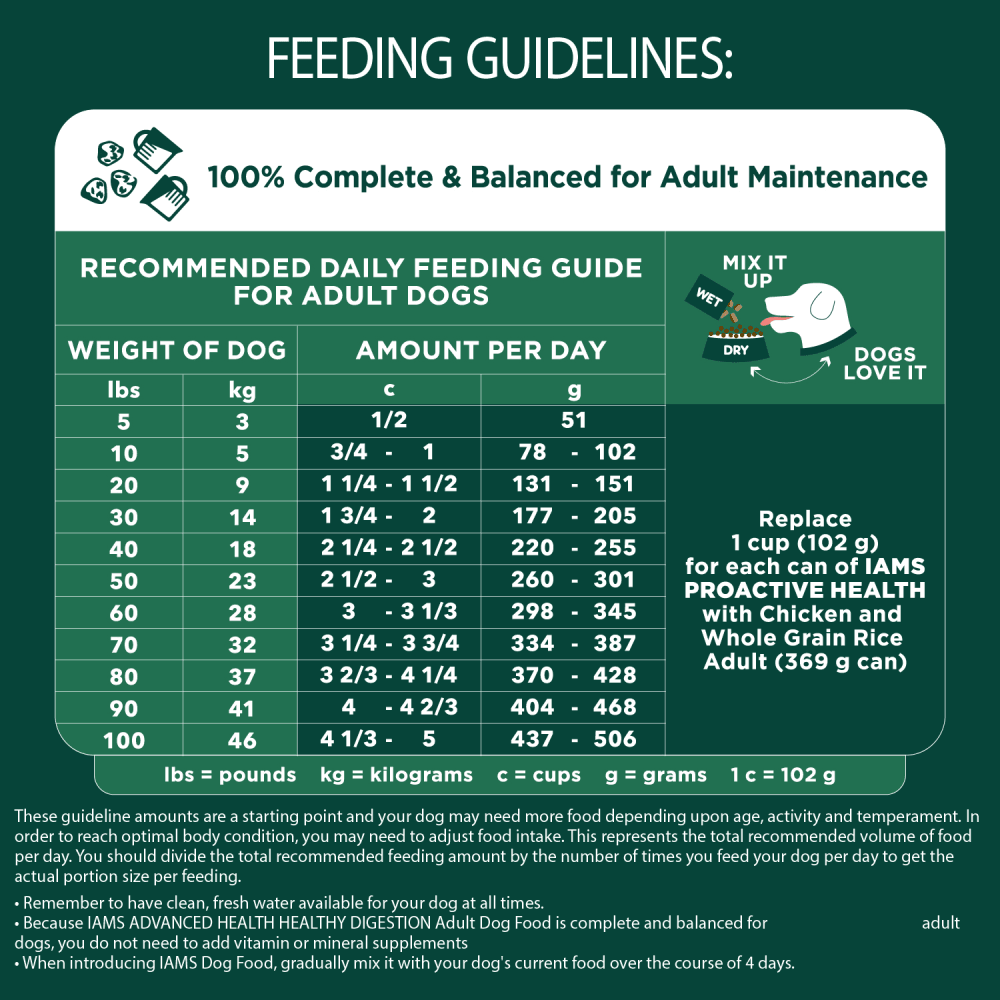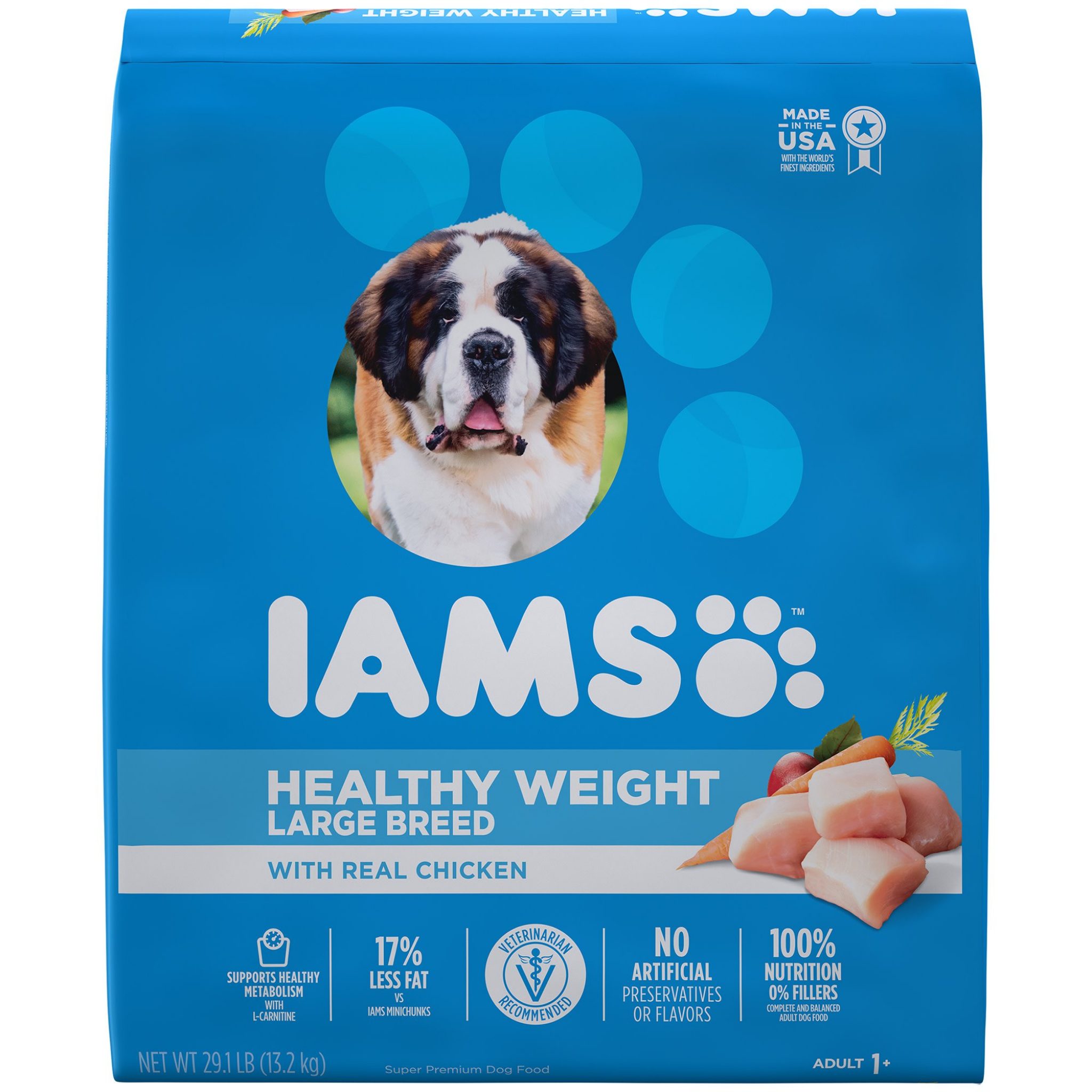What Are The Ingredients In Iams Dog Food

For pet owners, understanding the ingredients in their dog's food is paramount to ensuring their furry friend's health and well-being. Iams, a widely recognized brand in the pet food industry, offers a variety of formulas tailored to different life stages, breeds, and specific dietary needs. Examining the ingredients lists across these formulas reveals a complex composition designed to provide complete and balanced nutrition.
This article delves into the typical ingredients found in Iams dog food, offering pet owners a clearer understanding of what they are feeding their companions. It aims to provide factual information derived from publicly available ingredient lists and nutritional information provided by Iams, without endorsing or criticizing the brand.
Core Components of Iams Dog Food
The foundation of many Iams dog food recipes starts with a protein source. Commonly, this is chicken, chicken meal, or lamb meal. Chicken meal and lamb meal are concentrated protein sources, as they have had most of the moisture removed during processing.
Carbohydrates are essential for energy. Iams typically includes corn, sorghum, or barley as primary carbohydrate sources. These grains provide energy and fiber.
Fats are also crucial for energy and overall health. Chicken fat, fish oil, and sunflower oil are frequently used to provide essential fatty acids like Omega-3 and Omega-6.
Specific Ingredient Breakdown
Looking at specific formulations reveals further details. For example, Iams Adult Minichunks often lists chicken, corn, sorghum, chicken by-product meal, and dried beet pulp as key ingredients.
Dried beet pulp is a source of fiber. It supports healthy digestion.
Iams Puppy formulas often prioritize higher protein and fat content to support growth. These formulas may include ingredients like fish oil and added vitamins and minerals.
Additional vitamins and minerals are added to ensure a complete and balanced diet. These often include Vitamin E supplement, ascorbic acid (source of Vitamin C), beta-carotene, Vitamin A supplement, calcium pantothenate, biotin, Vitamin B12 supplement, Vitamin D3 supplement, riboflavin supplement, niacin, pyridoxine hydrochloride (source of Vitamin B6), thiamine mononitrate (source of Vitamin B1), folic acid, and menadione sodium bisulfite complex (source of Vitamin K activity).
Additives and Preservatives
Like many commercial dog foods, Iams uses preservatives to maintain freshness. Common preservatives include mixed tocopherols (a source of Vitamin E) and rosemary extract.
These are natural preservatives. They help prevent the food from spoiling.
Other additives may include artificial colors, though Iams has moved toward using more natural coloring agents in recent years.
Considerations for Pet Owners
It's important for pet owners to carefully read ingredient lists and consider their dog's individual needs. Some dogs may have sensitivities or allergies to certain ingredients, such as corn or chicken.
Consulting with a veterinarian is always recommended. This will help determine the best diet for your dog.
While Iams provides detailed nutritional information, understanding how these ingredients work together is key. Protein supports muscle development, carbohydrates provide energy, and fats support healthy skin and coat.
The Significance of Ingredient Order
The order of ingredients on the list is significant. Ingredients are listed in descending order by weight. This means that the first few ingredients make up the bulk of the food.
Therefore, a protein source listed first indicates a higher protein content. This is important for active dogs or those with specific dietary needs.
Pet owners should pay close attention to the first five to six ingredients. Those provide the most substantial information about the food's composition.
Conclusion
Iams dog food relies on a combination of protein, carbohydrates, and fats, supplemented with vitamins and minerals, to provide a balanced diet for dogs. Understanding the specific ingredients and their roles allows pet owners to make informed decisions about their dog's nutrition. By carefully examining ingredient lists and consulting with veterinarians, pet owners can ensure their furry companions receive the optimal diet for their health and well-being.

